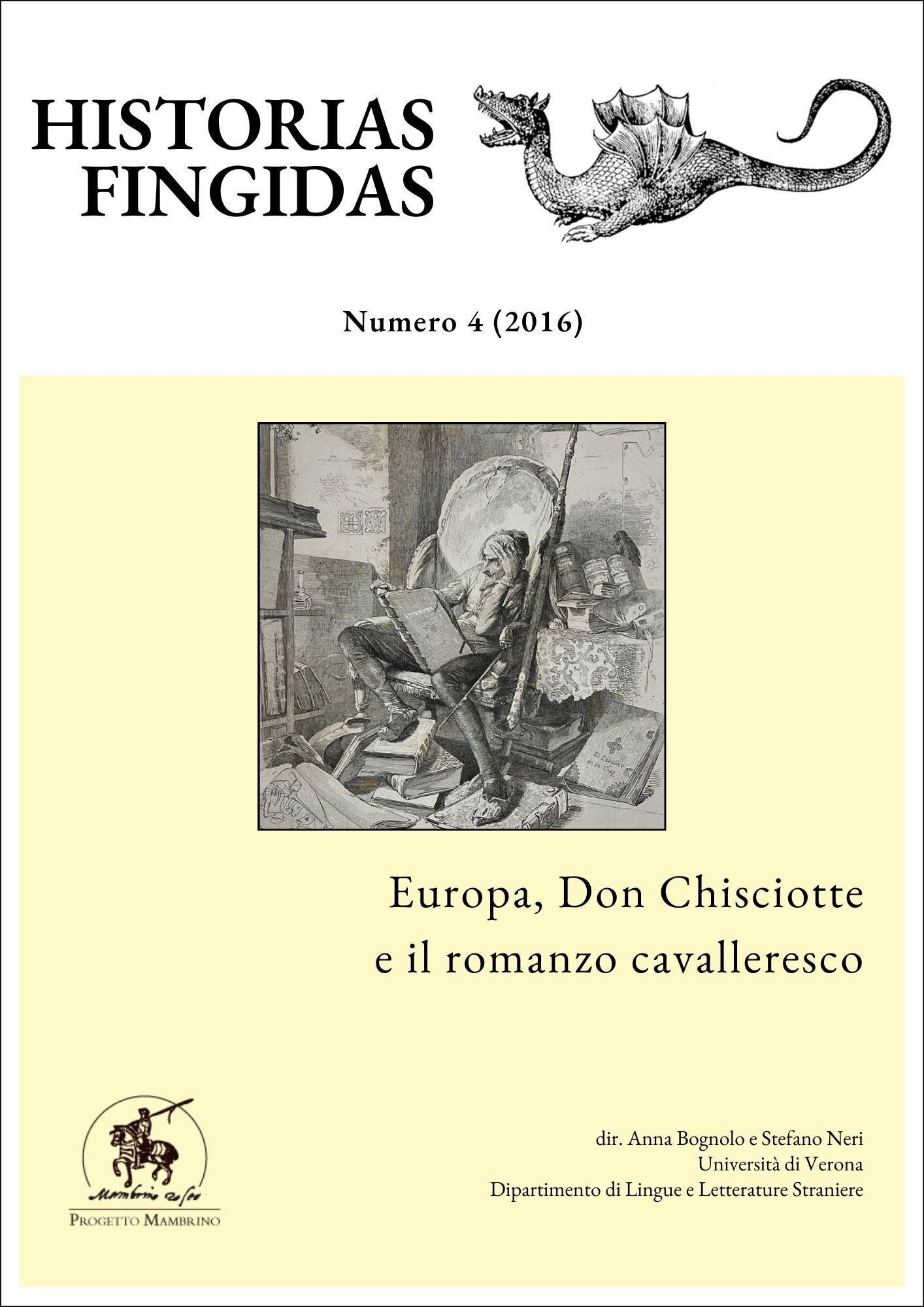Deep reading of chivalric fiction in times of Quijano
DOI:
https://doi.org/10.13136/2284-2667/54Keywords:
Deep reading, popular printed prose, chivalric fiction, print culture, memory, orality, Inquisition.Abstract
This paper studies some aspects of the deep reading of chivalric books and its consequences in the frame of the «normative» functions that, in a context of typographic acculturation, the printed book acquires by the mere fact of being written and printed with the protection of the law. By means of some cases of readers or hearers of texts well illustrated in inquisitorial processes, the article notes how the popular and chivalric book, in certain social spheres, is still in the sixteenth century (and also in the seventeenth) something transcendental in virtue of its normative and probably also pedagogical condition due to the fact of being printed.
Se examinan algunos aspectos de la lectura profunda del libro caballaresco y sus consecuencias en el marco de las funciones «normativas» que, en el ámbito de la aculturación tipográfica, adquiere el libro impreso por el solo hecho de ser escrito y de ser impreso con la protección de la ley. Valiéndose de algunos casos de lectores u oidores de textos bien ilustrados en procesos inquisitoriales, el artículo constata cómo el libro popular y caballeresco sigue siendo en el siglo xvi (y también en el xvii) y en determinados ámbitos sociales, algo trascendental en virtud de su condición normativa por impreso y, probablemente también pedagógica.
Downloads
Published
Issue
Section
License
Copyright (c) 2016 Pedro Manuel Cátedra García

This work is licensed under a Creative Commons Attribution-NonCommercial 4.0 International License.
Authors must attend to the following conditions:- Authors will mantain the copyright of their work and leave to the journal first publishing rights, simultaneously licensed by a Creative Common License - Attribution - No Commercial Use that permits other researchers to share the work indicating the intellectual property of the author and the first publishing in this journal not for commercial use.
- Authors can adhere to other license agreements not exclusive to the distribution of the published version of their work (for example: include it in an institutional archive or publish it in a monografic book), with the agreement of indicating that the first publishing belongs to this journal.
- Authors can disseminate their work (for example in institutional repositories or their personal website) before and during the submission procedure, as it can lead to advantageous exchanges and citations of the work (see also, The Effect of Open Access).

